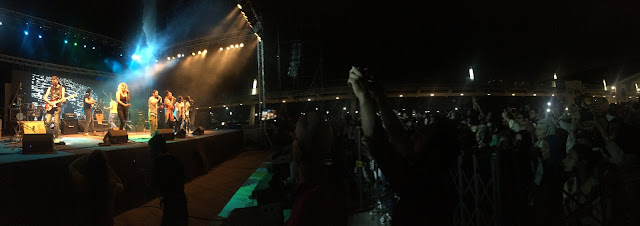Ending Female Genital Mutilation: The Case for Data
Last week, I was invited to attend a training for the UNFPA-UNICEF Joint Programme on FGM/C (female genital mutilation/cutting). Many of you may not be familiar with the topic, but it is a reality impacting North African and Arab Region countries at an alarming rate. Without getting graphic, the practice is performed as a mechanism to control female sexuality. It is also used as a way to marry off young girls. This is why the practice can be so directly linked with the issue of child marriage in many of the same countries that the practice is performed. I would urge you to familiarize yourself with it because no matter how gruesome, it is happening every day to girls around the world! Here in Egypt, there is a 92.3% prevalence of the practiced performed on women aged 15-49! Even crazier is that 82% of cases are being performed by medical physicians. The practice of medicalizing FGM came about after extremely high numbers of girls dying during the circumcision because midwives, local healers, and barbers were not equipped with the necessary means in an emergency. So the thought was: if doctors are doing it, less girls will die. Many realized that no matter who is performing the practice, it is detrimental for girls! There are laws against the practice in Egypt but many doctors are still performing it with a lack of enforcement and citizens willing to pay for the practice to be performed.
The training I attended was hosted here in Cairo and invited specialists from UNFPA and UNICEF on FGM/C from the countries impacted by the practice in the Arab States region. A main priority of the training was to understand the importance of data and how we monitor and evaluate change in the programs around FGM. We worked in our country teams and in mixed groups to find best practices in the two agencies and share the experiences. If you remember from my early posts, I assisted the team in Egypt to write the concept note and framework for our country's joint program.
While I am far from a specialist at this point in my career, it was really cool to share such space with individuals from all over the region and share ideas and thoughts on the program. We even spent one of the days on data visualization and platforms like Infogram. This program is one that I actually was able to learn in my Development Practice Lab class at SIPA. Because of this, I was able to be of great assistance in developing our presentation for the group. (As you can see, they made me present) Data is incredibly important and presenting it in a way that is easily understood by the common individual is crucial to make a true and sustainable change.
Being invited to attend events like this have made my time here very special. I have loved being able to work and support initiatives across the different UNFPA programs in the country office. I know it is helping me to become a stronger, multi-disciplinary development practitioner.



Comments
Post a Comment